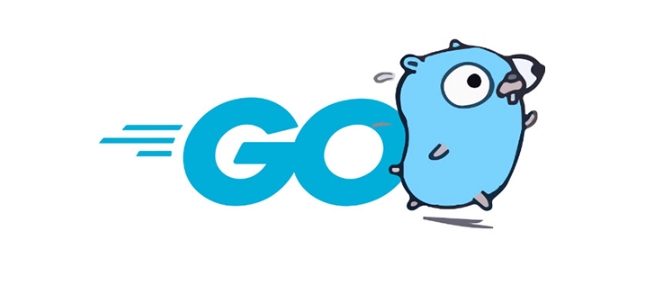The key to installing Go is to select the correct version, configure environment variables, and verify the installation. 1. Go to the official website to download the installation package of the corresponding system. Windows uses .msi files, macOS uses .pkg files, Linux uses .tar.gz files and unzip them to /usr/local directory; 2. Configure environment variables, edit ~/.bashrc or ~/.zshrc in Linux/macOS to add PATH and GOPATH, and Windows set PATH to Go in the system properties; 3. Use the go version command to verify the installation, and run the test program hello.go to confirm that the compilation and execution are normal. In the entire process, PATH settings and environment variable configuration are the most prone to errors, so special attention is required.

It is actually not difficult to install Go. As long as you follow the steps, you can basically do it smoothly. The key is to select the right version, correctly configure the environment variables, and verify that the installation is successful.

Download the Go installation package for the corresponding system
First, go to the official website download page ( http://ipnx.cn/link/e6fb52c108655e3dbb47bfeccce12131 to use the .msi file, macOS to use .pkg , and Linux to use .tar.gz .
- Windows users double-click the installation package and then take the next step.
- After clicking on installing the package, you will promptly drag to the Applications folder.
- For Linux, you need to manually decompress to
/usr/localdirectory. The command is roughly like this:
sudo tar -C /usr/local -xzf go1.xx.x.linux-amd64.tar.gz
Remember to replace the file name with the version name you actually downloaded.

Configure environment variables
This step is a place where many people are prone to errors, especially the bin path with PATH without GO.
- On Linux/macOS, edit the
~/.bashrcor~/.zshrcfile, plus these two lines:
export PATH=$PATH:/usr/local/go/bin export GOPATH=$HOME/go
Then execute source ~/.bashrc or source ~/.zshrc to take effect.

- Windows users can add paths in "System Properties → Advanced System Settings → Environment Variables". Add a path like
C:\Program Files\Go\binto PATH, depending on your installation location.
GOPATH can be customized, but the default is $HOME/go or %USERPROFILE%\go . It is recommended to keep the default, so it is not easy to get confused.
Verify that the installation is successful
Open a terminal or command line tool and enter:
go version
If the output is similar to go version go1.20.5 darwin/amd64 , it means that Go has been installed.
You can also run a simple test program to see if it can be compiled and executed:
package main
import "fmt"
func main() {
fmt.Println("Hello, Go!")
} Save as hello.go and run:
go run hello.go
If you print "Hello, Go!", then there's no problem.
Basically all this is it, the whole process is not complicated, but the PATH setting and environment variables are most likely to cause problems. As long as you pay attention to these details, you can usually do it.
The above is the detailed content of How to install Go. For more information, please follow other related articles on the PHP Chinese website!

Hot AI Tools

Undress AI Tool
Undress images for free

Undresser.AI Undress
AI-powered app for creating realistic nude photos

AI Clothes Remover
Online AI tool for removing clothes from photos.

Clothoff.io
AI clothes remover

Video Face Swap
Swap faces in any video effortlessly with our completely free AI face swap tool!

Hot Article

Hot Tools

Notepad++7.3.1
Easy-to-use and free code editor

SublimeText3 Chinese version
Chinese version, very easy to use

Zend Studio 13.0.1
Powerful PHP integrated development environment

Dreamweaver CS6
Visual web development tools

SublimeText3 Mac version
God-level code editing software (SublimeText3)

Hot Topics
 A Guide to Go's Templating Engine
Jul 26, 2025 am 08:25 AM
A Guide to Go's Templating Engine
Jul 26, 2025 am 08:25 AM
Go's template engine provides powerful dynamic content generation capabilities through text/template and html/template packages, where html/template has automatic escape function to prevent XSS attacks, so it should be used first when generating HTML. 1. Use {{}} syntax to insert variables, conditional judgments and loops, such as {{.FieldName}} to access structure fields, {{if}} and {{range}} to implement logical control. 2. The template supports Go data structures such as struct, slice and map, and the dot in the range represents the current iterative element. 3. The named template can be defined through define and reused with the template directive. 4.ht
 Integrating Go with Kafka for Streaming Data
Jul 26, 2025 am 08:17 AM
Integrating Go with Kafka for Streaming Data
Jul 26, 2025 am 08:17 AM
Go and Kafka integration is an effective solution to build high-performance real-time data systems. The appropriate client library should be selected according to needs: 1. Priority is given to kafka-go to obtain simple Go-style APIs and good context support, suitable for rapid development; 2. Select Sarama when fine control or advanced functions are required; 3. When implementing producers, you need to configure the correct Broker address, theme and load balancing strategy, and manage timeouts and closings through context; 4. Consumers should use consumer groups to achieve scalability and fault tolerance, automatically submit offsets and use concurrent processing reasonably; 5. Use JSON, Avro or Protobuf for serialization, and it is recommended to combine SchemaRegistr
 what does go vet do
Jul 26, 2025 am 08:52 AM
what does go vet do
Jul 26, 2025 am 08:52 AM
govetcatchescommonlogicalerrorsandsuspiciousconstructsinGocodesuchas1)misuseofprintf-stylefunctionswithincorrectarguments,2)unkeyedstructliteralsthatmayleadtoincorrectfieldassignments,3)sendingtoclosedchannelswhichcausespanics,4)ineffectiveassignment
 How to use reflection in Go?
Jul 28, 2025 am 12:26 AM
How to use reflection in Go?
Jul 28, 2025 am 12:26 AM
Usereflect.ValueOfandreflect.TypeOftogetruntimevaluesandtypes;2.Inspecttypedetailswithreflect.TypemethodslikeName()andKind();3.Modifyvaluesviareflect.Value.Elem()andCanSet()afterpassingapointer;4.CallmethodsdynamicallyusingMethodByName()andCall();5.R
 go by example http middleware
Jul 26, 2025 am 09:36 AM
go by example http middleware
Jul 26, 2025 am 09:36 AM
In Go language, HTTP middleware is implemented through functions, and its core answer is: the middleware is a function that receives and returns http.Handler, used to execute general logic before and after request processing. 1. The middleware function signature is like func (Middleware(nexthttp.Handler)http.Handler), which achieves functional expansion by wrapping the original processor; 2. The log middleware in the example records the request method, path, client address and processing time-consuming, which is convenient for monitoring and debugging; 3. The authentication middleware checks the Authorization header, and returns 401 or 403 errors when verification fails to ensure secure access; 4. Multiple middleware can be nested to adjust
 How to handle timeouts in Go?
Jul 27, 2025 am 03:44 AM
How to handle timeouts in Go?
Jul 27, 2025 am 03:44 AM
Usecontext.WithTimeouttocreateacancellablecontextwithadeadlineandalwayscallcancel()toreleaseresources.2.ForHTTPrequests,settimeoutsusinghttp.Client.Timeoutorusecontextviahttp.NewRequestWithContextforper-requestcontrol.3.Ingoroutineswithchannels,usese
 Efficient JSON Parsing and Manipulation in Go
Jul 27, 2025 am 03:55 AM
Efficient JSON Parsing and Manipulation in Go
Jul 27, 2025 am 03:55 AM
UsestructswithPERJSontagsFeRpredictabledatoensurefast, safeparsingwithcompile-timetypesafety.2.avoidmap [string] interface {string] interface {string] interface {string] interface {string] interface {string] interface {string] interface {string] interface {string] interface {string] interface {string] interface {string] interface {string] interface {string] interface {string] interface {string] interface {string] interface {string] interface {string] interface {string] interface {string] interface {string] interface {string] interface {string] interface {string] interface {string] interface {string] interface {string] interface {string] }duetoreflectionoverheadandruntimetypeassertionsunlessdealingwithtrulydynamicJSON.3.Usejson.RawMessagefordeferredorselectivep
 How does the switch statement work in Go?
Jul 30, 2025 am 05:11 AM
How does the switch statement work in Go?
Jul 30, 2025 am 05:11 AM
Go's switch statement will not be executed throughout the process by default and will automatically exit after matching the first condition. 1. Switch starts with a keyword and can carry one or no value; 2. Case matches from top to bottom in order, only the first match is run; 3. Multiple conditions can be listed by commas to match the same case; 4. There is no need to manually add break, but can be forced through; 5.default is used for unmatched cases, usually placed at the end.






